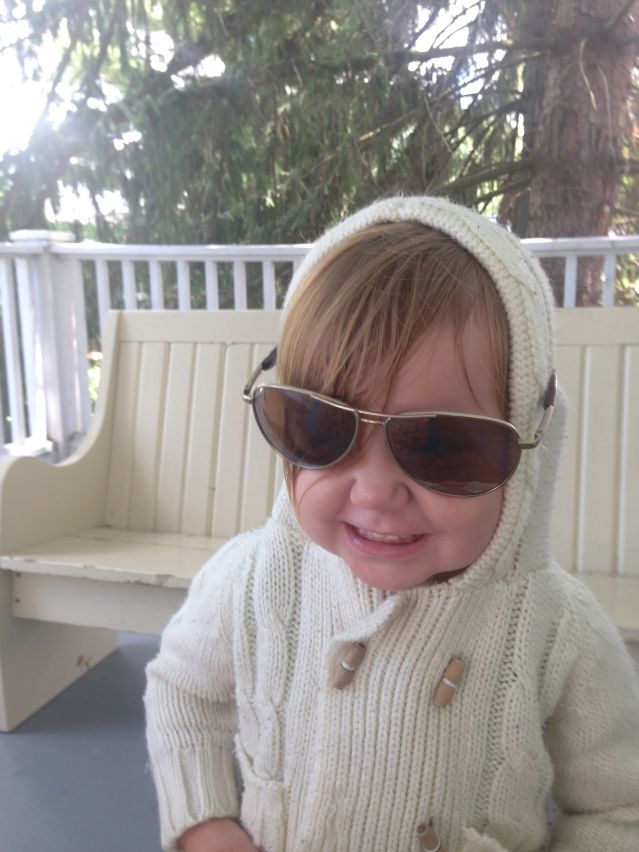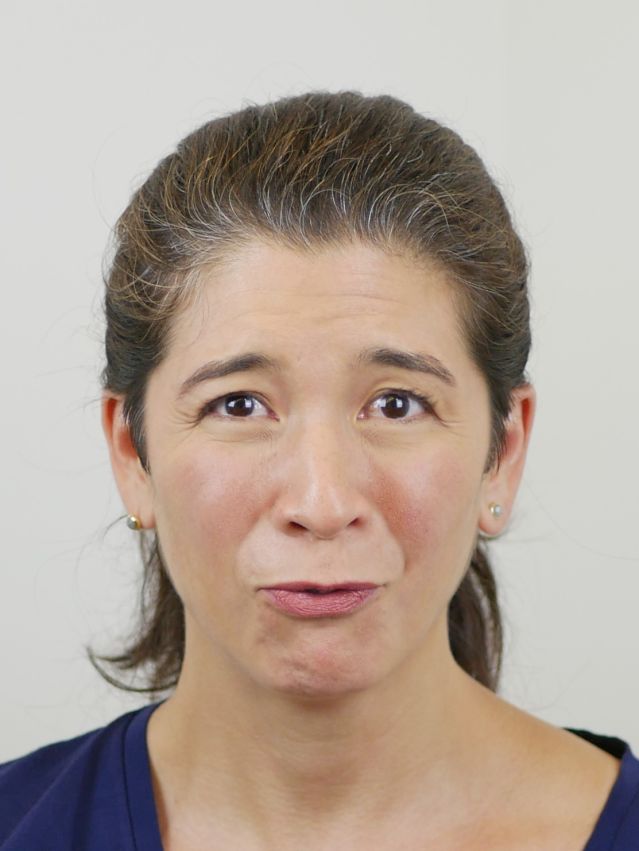Motivation
The Powerful Psychology of Cuteness
Research on kindenschema and the parental care system.
Posted January 15, 2023 Reviewed by Gary Drevitch
Key points
- When we find something cute we may experience a distinct emotion.
- Cute beings, like infants and kittens, activate the parental care system.
- The parental care system affects a wide range of psychological and behavioral inclinations, from interest in casual sex to our political views.
Take a look at the subjects of these two pictures below. What do they have in common?


In some ways very little. What does my daughter at age 2 have in common with a robot?
But they do share some important similarities. They are both adorable. Both probably caused you to have a similar reaction: “Awww! Isn’t that cute?”
It turns out that this response may actually be a distinct emotion. That’s what research by Makenzie O’Neil and Lani Shiota (O’Neil, Shiota, Danvers, & Hu, 2022) seems to show. Just as emotions like joy, sadness, or anger—three of the six basic emotions (Ekman, Sorenson, & Friesen, 1969)—elicit distinct and easily recognizable facial expressions, so too do cute stimuli like my daughter when she was a toddler and this adorable food delivery robot which roams my university’s campus.
In a sequence of studies, O’Neil and Shiota explored whether and how we respond to cute things. They found that when people were shown videos of cute children or baby animals, they tended to spontaneously make one of two facial expressions, which are distinct from those associated with other positive emotions. So when you saw the pictures at the beginning of this post, you might have made a face that looked like this:

O’Neil and Shiota also found that when someone makes a face like this, it turns out that we are pretty good at guessing that they were reacting to something cute. And they found that people from a range of different cultural groups—including people from the U.S., East Asia, and the Middle East—could accurately detect this expression and differentiate it from facial expressions accompanying other positive emotions. Taken together, these findings suggest that cute beings generate a distinct emotional response in us.
What Makes Something Cute?
But let’s step back a second. What makes something “cute"?
Drawing on work by Konrad Lorenz (1943), O’Neil tells us that “soft, rounded features; small, tightly clustered nose and mouth; high forehead and large cheeks; large eyes; short, stubby limbs; physical clumsiness; and inability to reach one’s goals,” are all features that lead us to perceive someone or something as cute. So, if we think about babies, toddlers, puppies, kittens, baby Yoda, and little delivery robots that are scared to cross the street, we start to see a pattern. They all possess what Lorenz described as kindenschema. And as O’Neil and Shiota note, the stronger the kindenschema, the cuter the kid, puppy, or robot (O’Neil, et al., 2022).
Why Does Cuteness Matter?
It turns out that when we find someone cute, it makes us want to help, protect, and nurture them (Kringelbach, et al., 2016). Evolution appears to have programmed us to respond in these ways, likely because it increases the odds that our children will survive and thus continue to pass on our genes (O’Neil, Danvers, & Shiota, 2018). In fact, we might think about being cute as a kind of superpower that babies (or puppies) possess—a power that helps them secure protection, food, and other resources from caregivers.
This cuteness response is part of a broader suite of psychological and behavioral tendencies which have been dubbed the parental care system (Kenrick, et al., 2010; Schaller, 2018). Interestingly, research involving over 15,000 people in 42 societies found that this is typically one of the strongest motivations people possess (Ko, et al., 2020; Pick, et al., 2022a). It’s stronger that our motivation to avoid infectious disease, gain status, or find new mates. And during the pandemic, it appears to have actually gotten stronger (Pick, et al., 2022b).
Beyond driving us to be nurturing and protective toward those we find cute, this system also causes us to avoid taking risks, reduces our trust in strangers, and makes us less interested in seeking out one-night stands (Schaller, 2018). All of these psychological effects arguably increase the odds that we will invest in children and keep them safe.
This parental care motivation also appears to affect our political preferences. In countries ranging from Australia to Lebanon, a recent study found that the higher people were on this motivation, the more politically conservative they tended to be (Kerry, et al., 2022). Experimentally inducing this motivation has a similar impact on people’s political attitudes (Kerry, et al., 2022). And these kinds of effects don’t appear to be confined to people who are themselves parents, any more than they are confined to responses to our own children, or even to human children (Schaller, 2018).
So, the next time you come across an adorable infant, or a cuddly puppy, aside from that warm sweet feeling, you are probably also experiencing shifts in a wide range of goals, attitudes, and ways of perceiving others and the world around you.
Facebook/LinkedIn image: OlesyaNickolaeva/Shutterstock
References
Ekman, P., Sorenson, E. R., & Friesen, W. V. (1969). Pan-cultural elements in facial display of emotions. Science, 164, 86-88.
Kenrick, D. T., Griskevicius, V., Neuberg, S. L., & Schaller, M. (2010). Renovating the pyramid of needs: Contemporary extensions built upon ancient foundations. Perspectives on Psychological Science, 5(3), 292-314.
Kringelbach, M. L., Stark, E. A., Alexander, C., Bornstein, M. H., & Stein, A. (2016). On cuteness: Unlocking the parental brain and beyond. Trends in Cognitive Sciences, 20(7), 545-558.
Lorenz, K. (1943). “Die angeborenen Formen mo¨glicher Erfahrung,” Zeitschrift fur Tierpsychologie, 5, 235–409.
O’Neil, M. J., Danvers, A. F., & Shiota, M. N. (2018). Nurturant Love and Caregiving Emotions. In Lench, H. (Ed.) The Functions of Emotions. New York, NY: Springer.
O’Neil, M. J., Shiota, M. N., Danvers, A. F., & Hu, J. I. (2022). Prototype facial response to cute stimuli: Expression and recognition. Unpublished manuscript. Arizona State University. Tempe, AZ.
Kerry, N., Al-Shawaf, L., Barbato, M., Batres, C., Blake, K. R., Cha, Y., ... & Murray, D. R. (2022). Experimental and cross-cultural evidence that parenthood and parental care motives increase social conservatism. Proceedings of the Royal Society B, 289(1982), 20220978.
Ko, A., Pick, C. M., Kwon, J. Y., Barlev, M., Krems, J. A., Varnum, M. E. W., . . . & Kenrick, D. T. (2020). Family matters: Rethinking the psychology of human social motivation. Perspectives on Psychological Science, 15, 173-201.
Pick, C., Ko, A., Kenrick, D. T., Wiezel, A., Wormley, A. S., Awad, E., . . . & Varnum, M. E. W. (2022a). Fundamental social motives measured across 42 cultures in two waves. Scientific Data, 9, 499.
Pick, C., Ko, A., Wormley, A. S., Wiezel, A., Kenrick, D. T., Al-Shawaf, L., . . . & Varnum, M. E. W. (2022b). Family still matters: Human social motivation across 42 countries during a global pandemic. Evolution and Human Behavior, 43, 527-535.
Schaller, M. (2018). The parental care motivational system and why it matters (for everyone). Current Directions in Psychological Science, 27(5), 295-301.


